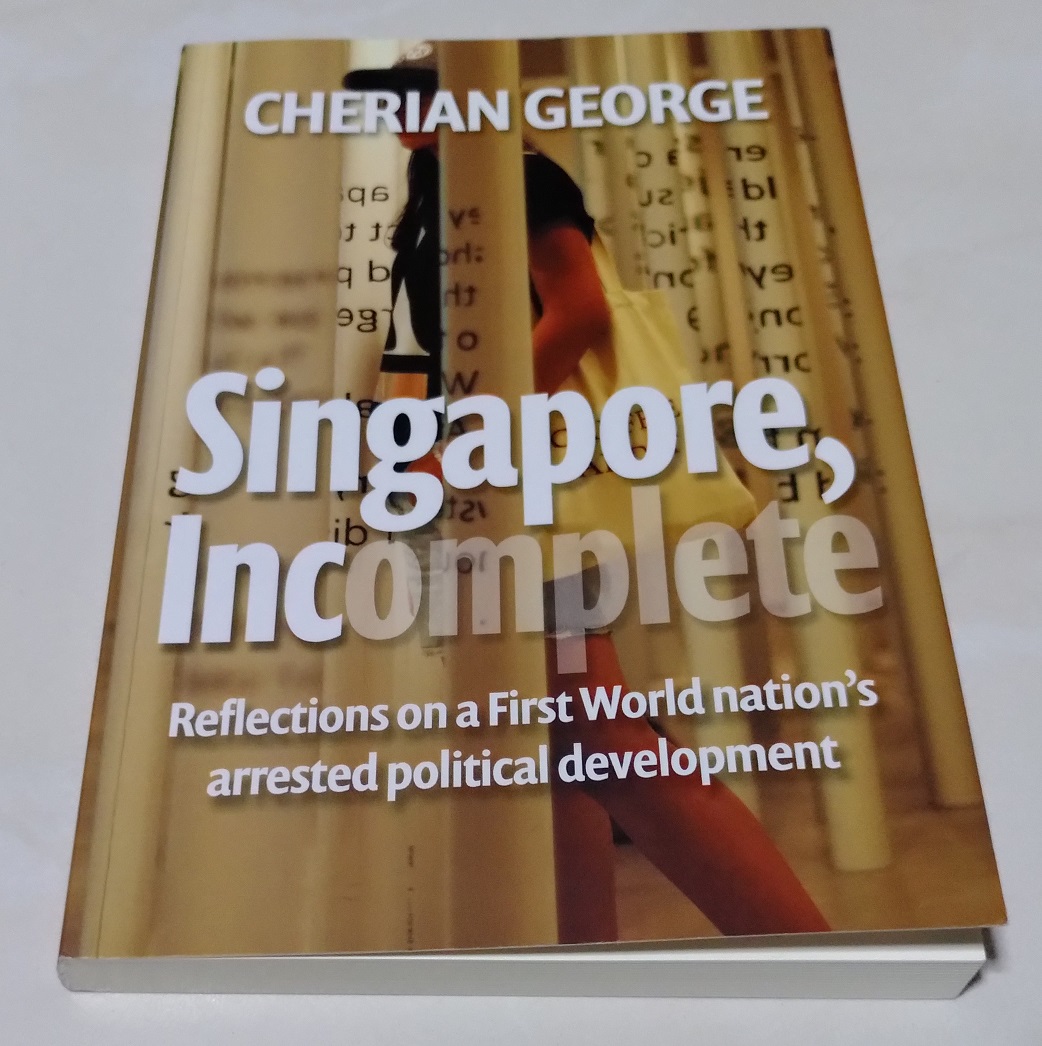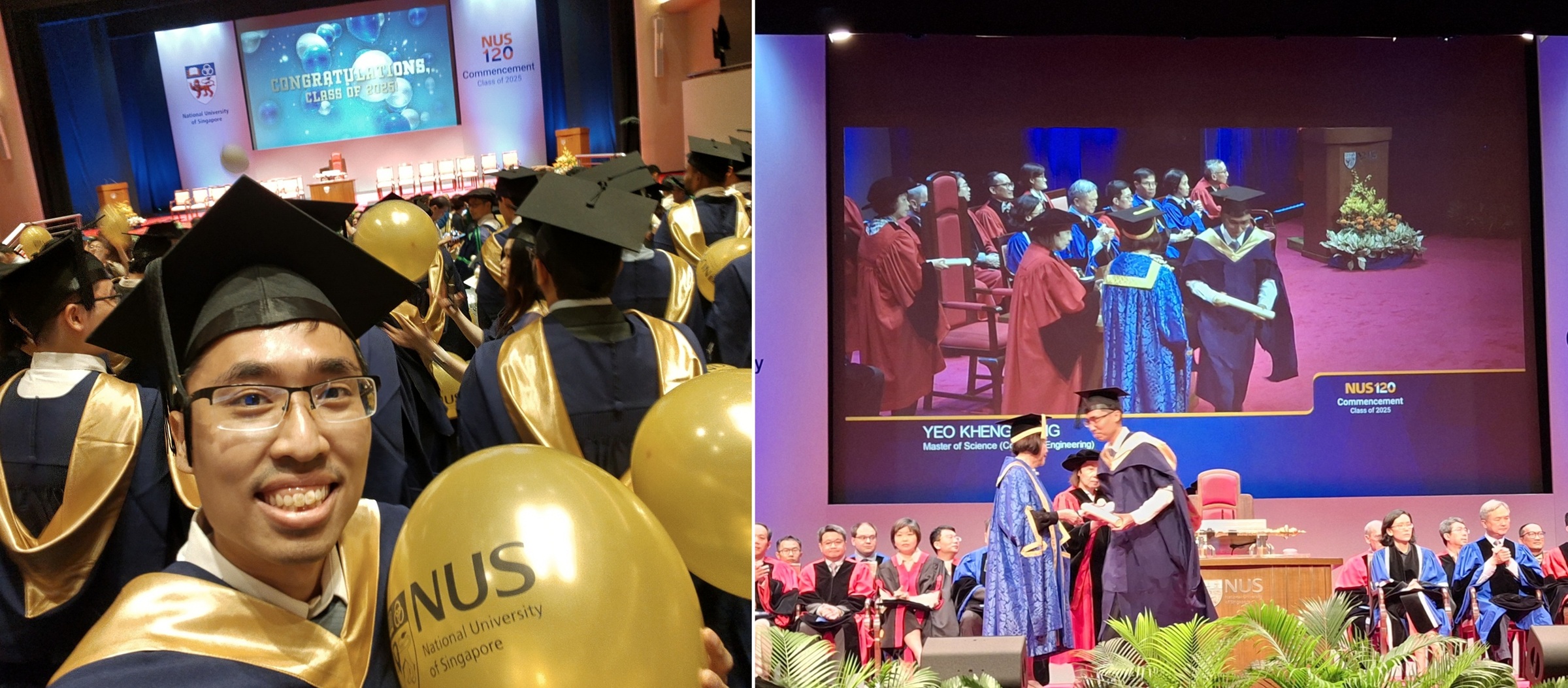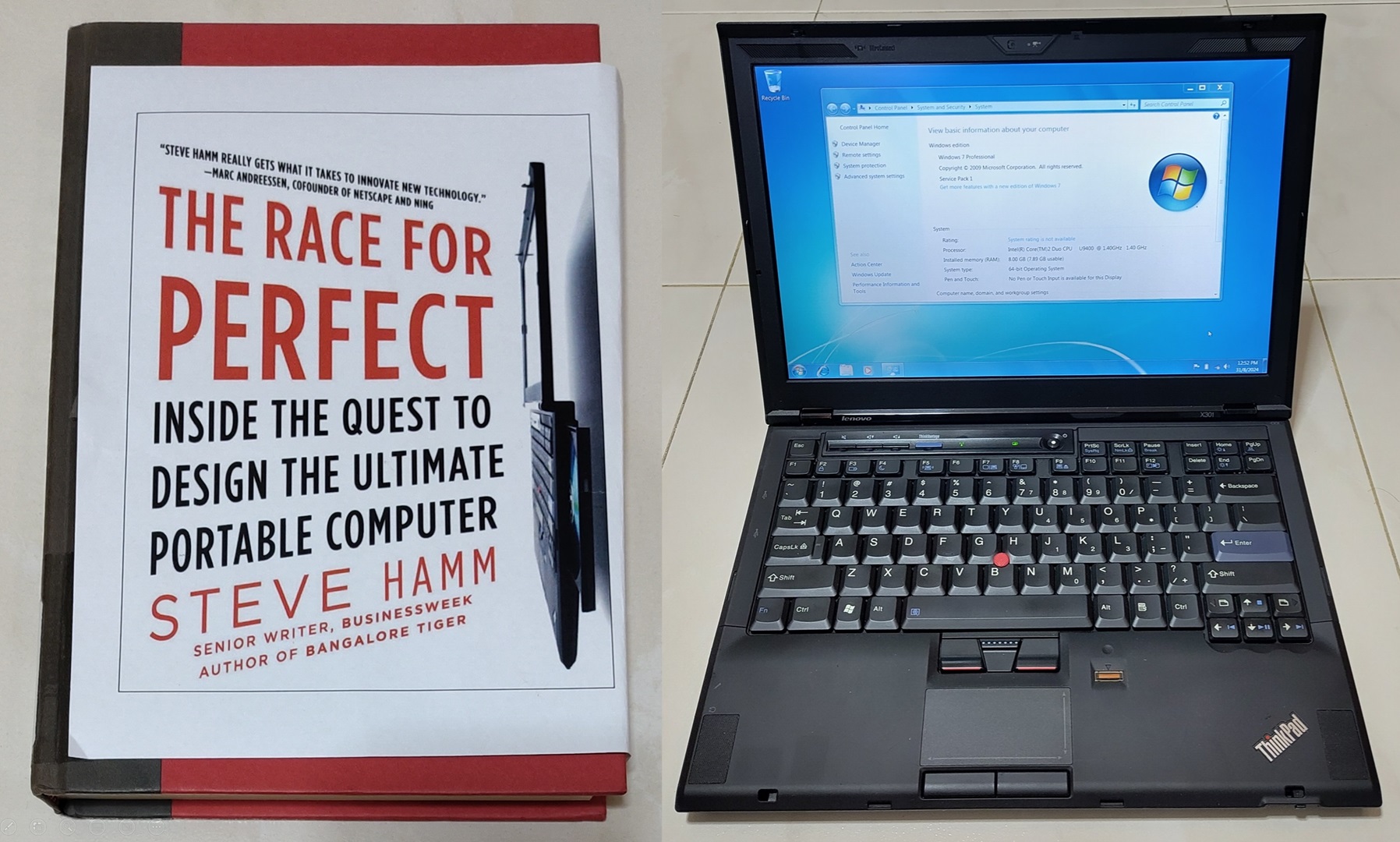
This is the second of a 3-part book-review series on the Air-conditioned Nation series of books written by the academic Cherian George (CG).
- Singapore: The Air-conditioned Nation Essays on the politics of comfort and control (2000)
- Singapore, Incomplete: Reflections on a First World nation’s arrested political development (2017)
- Air-Conditioned Nation Revisited: Essays on Singapore Politics (2020)
Like the first book, this book contains non-linear essays written by him but slightly updated to the times 17 years after he wrote his first book. I shall pick out certain points of selected chapters which I felt impacted me the most.
Justice and equality
CG wants the reader to understand that we need to do more in area of justice and equality for all in SG. One area he brings up is with respect to race and religion.
He points out to a Institute of Policy Studies survey which found that a significant number of minorities faced discrimination and some felt that some form of affirmative action was needed although we have freedom from racial tensions.
The overall picture suggests that minorities face impediments but are prepared to live with them, because they accept the reality that the majority will always enjoy certain advantages. Which doesn’t make the situation right.
I have read from some with more progressive mindsets proposing that we should eliminate this race classification altogether. In fact, I used to have this mentality as well. However, what CG says here makes sense.
Removing the racial lens entirely would mean losing all insight into systemic problems affecting racial groups …. if no data are collected by race, you’d have no way to show a problem exists. The answer is not to bury racial categories but to make sure they are not used to confine individuals to a box or disadvantage them, which is where anti-discrimination laws come in."
CG’s suspects the reason we do not have such laws is due to our pro-business doctrine but again cites that the US with such laws has done very well too.
Well personally having read this, I’m actually convinced he has made a sound argument. Keep the racial categories, but add the anti-discrimination laws.
The power of symbols
This section was about the 2017 Presidential Election where it was reserved only for Malay candidates.
CG first introduces the official reason given by the government on why this election was reserved:
The government cited a survey by Channel NewsAsia and the Institute of Policy Studies, according to which around three or four out of every ten Chinese respondents wouldn’t say that they would accept a minority president. The survey implied a Malay candidate for president would be rejected by as much as one-third of the population.
However he disagrees with the way the survey data should be interpreted. His explanation is so good that I won’t truncate it.
The government read too much into these survey findings. It is one thing to ask survey respondents to react to a hypothetical, nameless faceless candidate of a given race. It’s another thing entirely to offer voters a specific, real-life individual. In the former case, respondents can only rely on their stereotypes–because they are not given any information to go on other than the person’s race. In the latter case, voters are able to consider the whole person. Some voters may not see past the candidate’s colour. But many will respond to other salient traits, such a character and experience.
Now I recognise that this is entirely his opinion and he has cited no direct evidence to back it up. Nevertheless, it offers another reasonable counter-perspective to the government’s official stand. He would use the indirect evidence of the former DPM Tharman Shanmugaratnam from a minority race as an example of someone many Singaporeans would want to be PM.
391 Orchard Road
This chapter goes into the issues of immigration and xenophobia. The title of the section comes from an event in 2014 when some Filipinos immigrants wanted to celebrate their country’s Independence Day at that area. There was an online uproar regarding this and that event was cancelled.
In the early 1990s, my (news media) colleagues were detecting signs of unhappiness about the number of scholarships being given to foreign student, and foreigners being favoured for jobs. But when they approached officials for comment, the government would simply instruct editors to kill the stories. Singapore was thus denied the open discussion it badly needed.
…
If Singaporeans had been permitted to air their grievances back then, the government would have been pressured to make course corrections much earlier.
…
It had fallen into the classic authoritarian trap - believing its own propaganda that people were happy with its policies, and mistaking their gagged silence for consent - until its blinkers were rudely snatched off by the 2011 election results.
The key point that CG wanted to bring up here was that these issues of opening our immigration floodgates were felt a long time ago. Due to tone-deafness of the authorities, this problem was allowed to bubble up until the problem blew up.
CG also fairly pointed out that the xenophobic double standards and racial prejudices that some Singaporeans have. He raised the example of the Irish community celebrating Saint Patrick’s Day with no objections.
In my opinion, most people are not brought up to be xenophobic tendencies. We welcome guests to our country to live and work here. However, when the number is high enough, I feel it’s natural for some people to start feeling threatened and the more extreme of those will more likely exhibit xenophobic behaviours. Simply calling them out as xenophobic risks oversimplifying the symptoms and not identifying the root cause of some Singaporeans feeling like a minority in our own country.
Freak Elections
I have heard the term “Freak Elections” used many times but a simple Googling does not produce a very good definition. Here CG gives the best and most succinct context and definition that I have read so I shall reproduce it in full.
If the outcome differs from the preferences of the losing party and its supporters, that’s not a freak election. That is just an election.
…
To be worthy of the name, a freak result is one that the majority of voters didn’t want. This outcome is possible because voting is susceptible to coordination failures. People vote based partly on imperfect knowledge of how others will use their ballot. Those expectations may not be accurate.
…
For example, let’s say you want the PAP in charge but also want a larger opposition. If you believe that the national tide is strongly in the PAP’s favour and you live in one of the few hot seats, you would probably feel that voting for the opposition in your constituency would help achieve your goal of a PAP government plus a more robust opposition. On the other hand, if you believe the opposition is already going to do very well nationally, you might vote for the PAP in your ward because it’s offering you the better candidate.
…
In either case, if you and others like you assess the mood wrongly, you might end up using your vote in a way that goes against your own wishes. You all overestimate the PAP’s strength, vote opposition, and contribute to ousting the PAP—to your horror. That’s a freak election. It could also work the other way: you overestimate the opposition tide, give your vote to the ruling party, and end up with a decimated opposition, which isn’t what you wanted.
…
Such coordination problems can be solved by having more data about where the parties stand. So, there is actually a simple solution to banish the spectre of freak elections: lift the prohibition on opinion polling during the campaign. Of course, after Donald Trump’s victory in the United States’ presidential election of 2016, we know how wrong pollsters can be. But tiny Singapore, with a much simpler electoral system, is much easier to poll reliably.
Arm voters with enough quality information about their fellow Singaporeans’ sentiments, and they won’t get election outcomes that they do not intend. Most countries allow such polls, which is why the term “freak election” seems to be used more in Singapore than anywhere else.
This topic is one of the best written sections I feel and it is worth getting this book just for this section alone. This Freak Election situation seems to be a uniquely Singapore problem where almost everyone wants the PAP to be in charge but still have some opposition voices.
I used to be neutral about this opinion polling thing. However after reading this section, I can understand this may be a reason why the PAP government deliberately chose to disallow opinion polling despite knowing this is a solution to prevent the Freak Election problem.
Calibrated coercion
I felt this chapter was quite intriguing and seems to be a uniquely Singapore and PAP strategy.
Lee’s calibrated coercion contributed to the PAP’s longevity. Many authoritarian regimes have been toppled after overdoing the use of force. Excessive violence tends to backfire. Instead of solidifying obedience, it generates moral outrage that can spawn rebellion.
CG lists many actions taken by the PAP over the years, cracking down on student activism, adversarial newspapers, church workers in Operation Spectrum under the Marxist conspiracy and controlling the Law Society.
The main impact, though, is on the opposition and other pro-democracy forces. On the one hand, they are able to operate with less political risk. They need not worry about arbitrary arrest whe way their counterparts do in many other countries. On the other hand, they cannot tap into a wide and deep sense of injustice fed by rampant human rights abuses.
Chee Soon Juan is a notable person that comes to mind when it comes to pushing the limits. But we know that he never got desired reaction from the authorities and in fact, the stigma for his actions decades ago still lingers over him till today.
The government still uses authoritarian methods, but to a degree that most Singaporeans seem happy to live with…. making it easy for the public to brush them aside as the exception rather than the rule.
I agree calibrated coercion is one of the shrewdest strategies employed by the PAP since independence to the present time. Playing unfair just enough to stay in power but not too much that critics have strong enough ammunition against it.
Freedom of Speech (FOS)
I feel FOS is quite a thorny topic in some quarters of the political discussion. I face this as well when I discuss politics with friends where the debate quickly degenerates into binary terms and slippery slope arguments.
CG puts this across succinctly:
You say the country needs more freedom of expression. They answer that freedom cannot be absolute. Instantly the debate becomes about the anarchy of untrammelled free speech versus the status quo. Put like that, many Singaporeans decide they would prefer the latter to the former.
In reality, everything is always on a spectrum.
If we’re really interested in getting the best deal for Singapore, we should stop caricaturing free speech salesmen as absolutists. Nobody other than the odd libertarian is asking for free expression with no limits.
CG proposes a three-part test which I shall summarise.
1. Are the laws on restriction clear and precise?
Imprecise laws would allow the government to restrict speech arbitrarily according to its interests. Broad laws are vulnerable to subjective interpretation.
2. Is the restriction based on legitimate grounds?
CG feels defamation laws are reasonable in this test, hate speech should be prohibited. However, protection from hurt feelings is an unwise threshold as this is extremely subjective and vulnerable to certain groups gaming the system to shut out new ideas. New ideas will almost certainly ruffle some feathers and this can shut down a debate before it happens.
3. Are the restrictions necessary and the punishments proportionate?
The restrictions should be the minimum required to achieve test 2. CG proposes the following examples that would adhere to these principles.
Don’t jail someone or ban a publication when a fine would suffice. Don’t make speech a crime when the problem could be addressed through civil law.
I’m sure much has been written on FOS by other authors. But this is my first time reading this topic discussed in this nuanced matter. I have the same opinion as CG on this topic but never knew how to articulate my thoughts as well as he could until I read this. Now I know how.
Active Society
By Active Society, CG refers to civil society. A collection of people with similar interests but not on on the political level.
Although civil society has much lower constitutional status than electoral politics, it plays a vital complementary role. Political parties will never address every important issue. In particular, parties in competitive democracy are partial to issues that give them an electoral advantage. They try to avoid worthy causes that may be vote losers…. Unlike proportional representation systems…. in our first-past-the-post system… there is no incentive for any political party to push issues supported by only a minority of voters… For eg, gay rights.
The local civil society scene is anecdotally viewed as less active than other developed countries. This is one possible reason:
When an advocate for change is too persistent for the government’s liking, its standard response is that he should join a political party and contest for power. This comes across as a threat, signalling to everyone that the person is being categorised as an enemy and everyone knows what happens to enemies of the PAP.
At the end of this chapter, CG emphasises the benefits of civil society. Because of them, we take for granted now rules we do not have today such as male-only suffrage, colonial rule, child labour, slavery etc. Those conditions were accepted by the majority of the past but because of the efforts of civil societies, we do not have them today.
This kind of reminds me of Repair Kopitiam. A group which I volunteer in with the goal of instilling the repair culture in others. In some aspects, it can be viewed as part of civil society trying to change the buy-and-throw-away culture held by the majority of people. I faced my own fair share of detractors but I take it as part of the efforts to effect change in society.
If forced to an electoral platform, Repair Kopitiam would probably not exist owning to the interests of others who profit from the consumerist culture as well as the fact it will always take a backseat to more important bread-and-butter issues.
A PAP wish list
CG has a list of items he hopes the PAP can improve on.
- I want leaders who believe they know best but are equally certain that they don’t know it all.
- I want to see the PAP permitting opponents to challenge its political power on a level playing field.
- Independent electoral commission
- National broadcaster impartial to politics
- People’s Association should cooperate equally with all MPs including opposition ones
A level playing field would probably just result in a reduction in the degree of PAP’s parliamentary dominance. This would be more than compensated for by the extra legitimacy it would gain from winning its seats fair and square.
- Stand up for what’s right, even if this places it a few steps ahead of the majority of Singaporeans or risks voter disapproval.
It’s relatively uncommon I believe for someone we deem to be more anti-establishment to provide such tips. However it shows that CG cares.
He did not say this, but I believe what is good for the PAP is also good for Singapore.
Conclusion
I feel like this is reading Straits Times commentaries spread over many years combined into a single book. This book I feel is of a far higher standard than the first book. Well perhaps it’s because CG has 17 years more experience and the fact the topics raised are closer in relevance to the issues of today.
There 28 chapters in this book and I only shared 8 of them I felt were the most impactful. So if you found the topics I surfaced from his book interesting, I highly encourage you to get his book to learn more about the other issue he has to share.
Continue to my review for the last book of this series Air-Conditioned Nation Revisited: Essays on Singapore Politics (2020).





